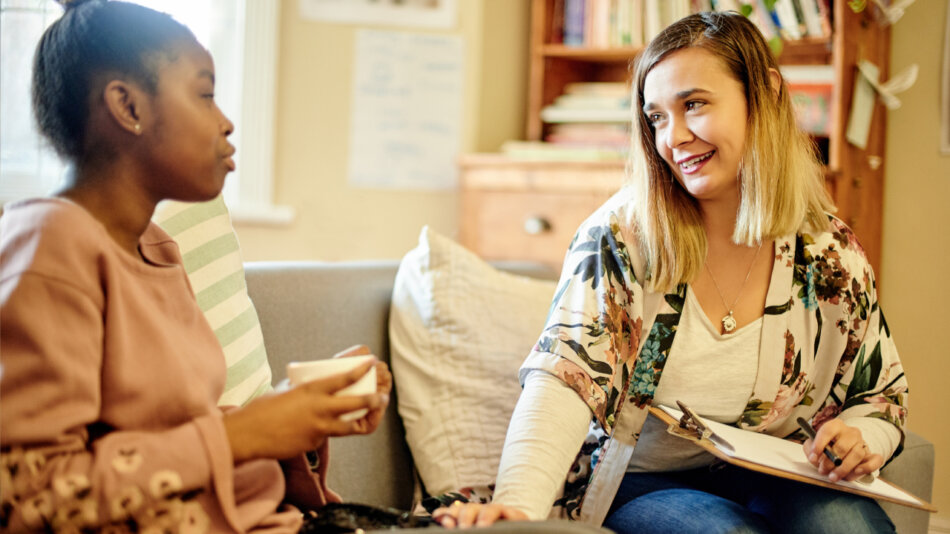Understanding teen residential programs with academic support can feel overwhelming, but you’re not alone in seeking the best environment for your child’s mental health and education. A teen residential program with academic support combines 24-hour therapeutic care, structured schooling, and psychiatric oversight in a supervised setting that accepts insurance. Whether your teen is facing depression, anxiety, trauma, or behavioral challenges, these programs stabilize daily life while keeping them on track academically. Many parents find peace of mind knowing their child receives consistent therapy, medication management, and personalized lessons—all under one roof at a residential treatment center for teens.
In this article, you’ll learn how these programs work, what academic services to expect, how therapy integrates into daily routines, which treatment specialties are available, and how to navigate insurance and family involvement. By the end, you’ll feel confident evaluating options and taking the next steps toward a supportive, educational, and therapeutic stay for your teen.
Understand residential treatment
What is a teen residential program with academic support
A teen residential program with academic support provides full-time, live-in care for adolescents ages 12–18 who need a structured therapeutic environment. Your teen lives on campus, participates in daily therapy and psychiatric check-ins, and attends classes tailored to their academic level. This model ensures continuity of education while addressing mental health, emotional instability, or behavioral disorders. Programs often accept major insurance plans, so you can focus on your child’s recovery rather than out-of-pocket costs.
Benefit of round-the-clock care
- 24-hour supervision by licensed staff reduces risk of crisis
- On-site medical and psychiatric oversight for medication adjustments
- Immediate support during emotional or behavioral distress
- Consistent routines that reinforce healthy habits
These elements combine to create a sanctuary where teens can focus on healing without distractions from toxic peer groups or social media pressures.
Compare program models
Residential programs vary in setting and focus. You might consider:
- Therapeutic residential schools that blend traditional academics with therapy [1].
- Specialized psychiatric residential treatment units within hospitals.
- International models such as the French soins-études program, which integrates psychiatric care with national curriculum schooling on-site [2].
Understanding these models helps you match your teen’s needs to the right environment, whether you prioritize a campus feel, clinical intensity, or academic rigor.
Explore academic support
Virtual schooling options
Some programs partner with online schools so teens can continue or accelerate coursework. For example, Family First Adolescent Services in Florida offers:
- Enrollment in Florida Virtual School (FLVS) for standard classes
- Dual enrollment at Palm Beach State College for advanced credit
- Hospital Homebound program for teens enrolled out-of-state [3]
Academic support staff integrate therapy schedules with class time, ensuring your teen doesn’t fall behind.
On-site academic services
Other programs, such as Skyland Trail, require enrollment in an accredited school or their in-house digital platform (ADVANTAGES Digital Learning Solutions). Each teen receives at least 2.5 hours of daily academic support, with progress tracked and communicated to families and the school of origin [4]. During summer break, teens must take at least one credit-bearing course, keeping momentum toward graduation goals.
College and career readiness
Many residential programs go beyond core academics to prepare teens for life after discharge. You may see:
- SAT, ACT and PERT prep classes
- Workshops on scholarship research and FAFSA filing [3]
- Career aptitude assessments and ASVAB preparation
- Resume building and mock interviews
These offerings equip your teen with both academic credentials and real-world skills, smoothing the transition back home and into further education or work.
Academic offerings at a glance
| Program provider | Academic model | Daily support | Enrollment options |
|---|---|---|---|
| Family First Adolescent Services | Virtual schooling (FLVS), dual enrollment, Hospital Homebound | As needed | High school diploma track via virtual or college courses |
| Skyland Trail | Accredited school partnership or ADVANTAGES digital learning | 2.5 hours minimum | School year and summer credit courses |
Assess therapeutic integration
24-hour supervision and psychiatric care
Your teen’s mental health recovery hinges on consistent supervision and medical oversight. In residential settings:
- Nurses and psychiatrists provide daily medication management
- Emergency intervention protocols are in place for crises
- Sleep, nutrition, and exercise are structured to support emotional stability
This level of care ensures your teen never feels isolated or unsupported during critical moments.
Therapy modalities
Programs combine evidence-based therapies, often including:
- Individual therapy for one-on-one exploration of issues
- Group therapy to build peer support and accountability
- Cognitive behavioral therapy (CBT) and dialectical behavior therapy (DBT) [5]
- Family workshops that improve communication and address dynamics affecting recovery
Such integration helps your teen generalize coping skills across situations, strengthening resilience.
Family workshops and involvement
Active family participation—through workshops, parent education sessions, and structured visit days—deepens your understanding of your teen’s needs. This collaboration:
- Improves communication strategies at home
- Addresses underlying family issues contributing to emotional instability
- Prepares everyone for the transition back to daily life
Consider treatment specialties
Stabilizing depression and anxiety
If your teen struggles with mood disorders, look for programs offering specialized tracks:
- residential program for teen depression and anxiety
- inpatient treatment for teens with mood disorders
Therapy teams tailor cognitive and behavioral interventions to reduce symptoms and teach long-term management strategies.
Addressing trauma and behavioral issues
Residential programs for trauma or PTSD combine therapy with experiential healing:
- Eye movement desensitization and reprocessing (EMDR)
- Trauma-focused CBT
- Adventure therapy and art or equine therapy
- residential treatment for teens with trauma or ptsd
Behavioral programs also manage self-harm and suicidal ideation through safety planning and emotional regulation skills [6].
Co-occurring disorders and personality care
Many teens have overlapping challenges, such as substance use with anxiety or mood disorders. You may need a teen residential treatment for co-occurring disorders. For personality concerns—like borderline traits—look for programs specializing in tailored DBT or psychodynamic approaches [7].
Review insurance coverage
Insurance acceptance
Most accredited teen residential mental health programs accept major insurance plans. Always verify coverage by:
- Calling your provider for in-network options
- Requesting an insurance benefits check from the admissions team
- Exploring out-of-network reimbursement if needed
Programs labeled residential care for teens that accepts insurance can guide you through preauthorization and paperwork.
Out-of-network benefits and financing
If your preferred program is out-of-network, you can still:
- Submit claims for partial reimbursement
- Use HSA or FSA funds for copays
- Arrange payment plans or sliding-scale fees
Financial coordinators at each facility often help families navigate these options.
Location and logistics
Consider proximity to home for visitation and discharge planning. States like California have numerous options—see mental health residential treatment for teens in california for programs in your area. Also ask about transportation services or family lodging during visits.
Plan family involvement
Communication during treatment
Establish clear communication schedules—phone calls, video sessions, and in-person visits—so your teen feels supported without disrupting treatment routines. Many programs provide family portals for progress updates.
Aftercare and discharge planning
A robust discharge plan addresses both mental health and academic goals. Expect:
- An educational discharge plan outlining recommended courses and credit recovery steps
- Referrals to teen mental health recovery program or outpatient therapy
- Coordination with your teen’s school to re-enroll or transition
Well-structured aftercare reduces relapse risk and eases your teen’s return to daily life.
Take next steps
Evaluating your options
- Make a list of programs matching your teen’s clinical and academic needs
- Schedule virtual or on-site tours to meet staff and see facilities
- Compare accreditation, staff credentials, therapy approaches, and school partnerships
Preparing your teen and family
- Gather medical, educational, and insurance documentation
- Create a packing list that balances comfort items with treatment guidelines
- Discuss expectations and routine changes in advance to reduce anxiety
Making an informed decision
By understanding how teen residential programs with academic support integrate education, therapy, and 24-hour care, you empower yourself to choose the best path for your child. The structured environment, qualified staff, and customized academic plans ensure your teen receives holistic support—setting the stage for lasting recovery and academic success.










